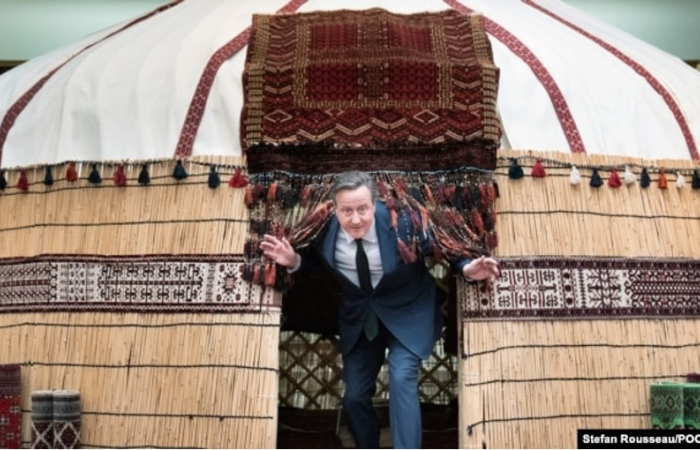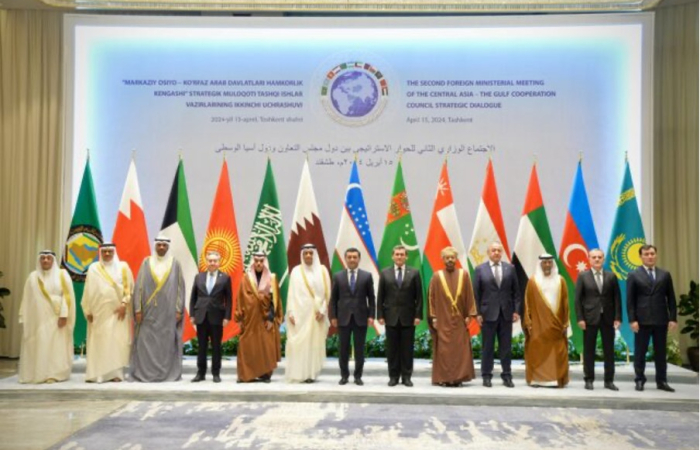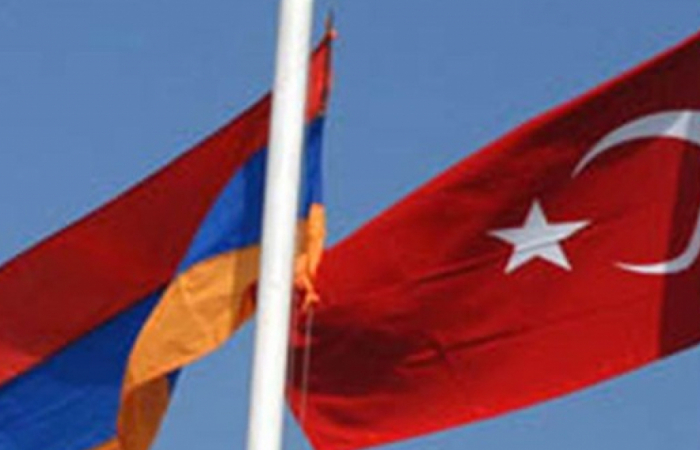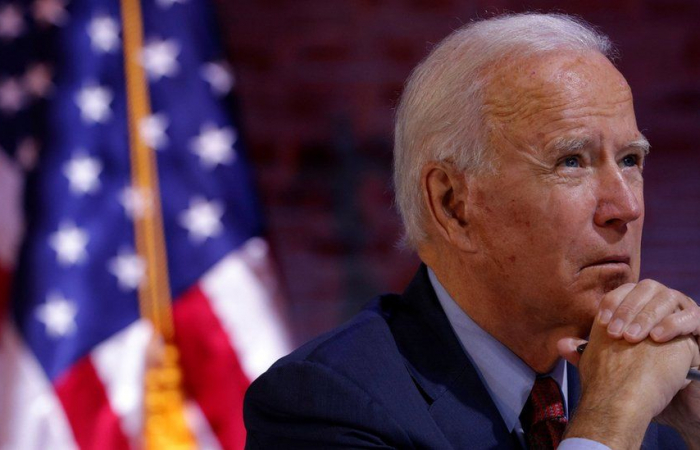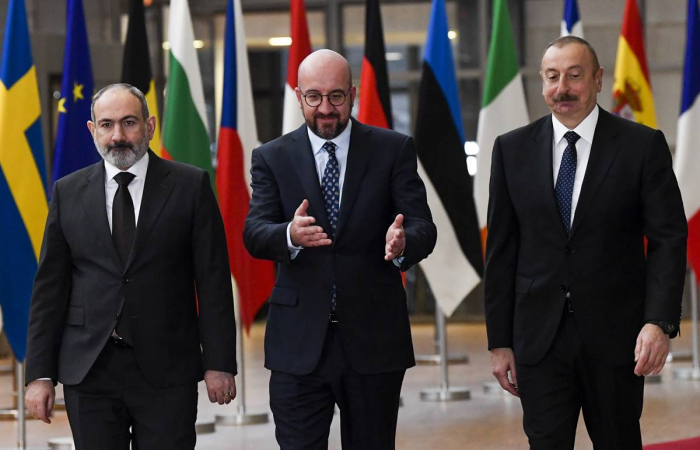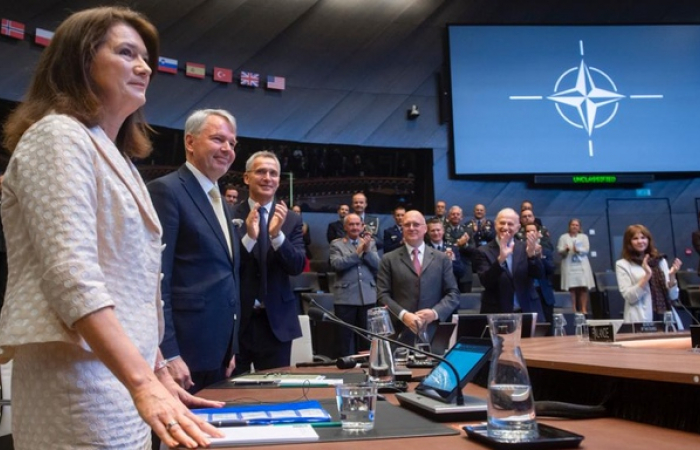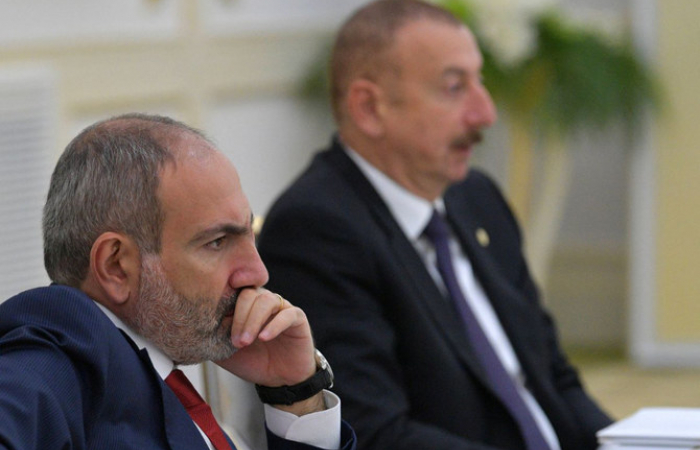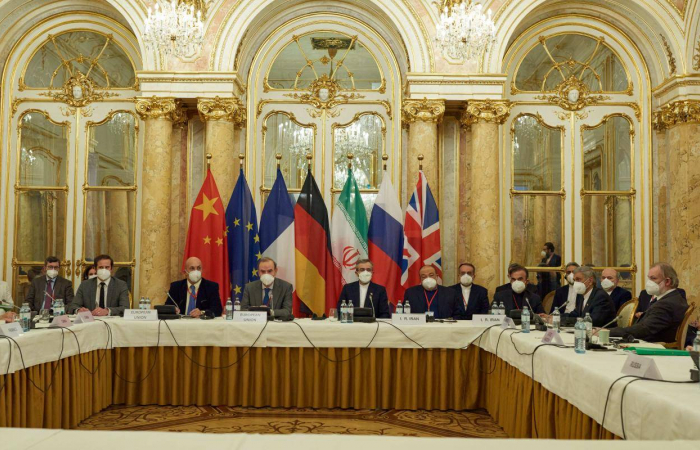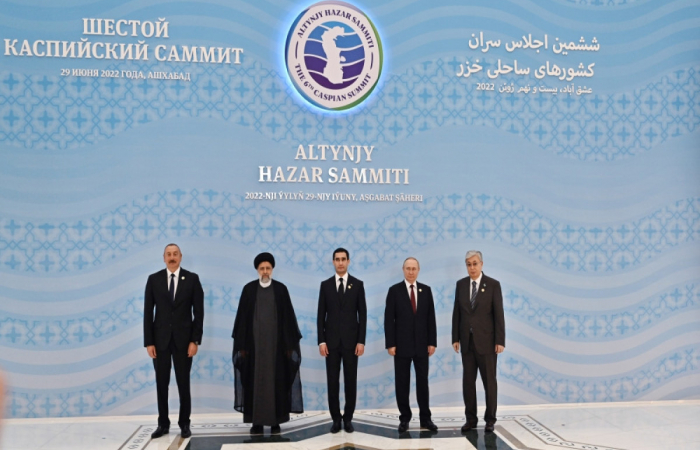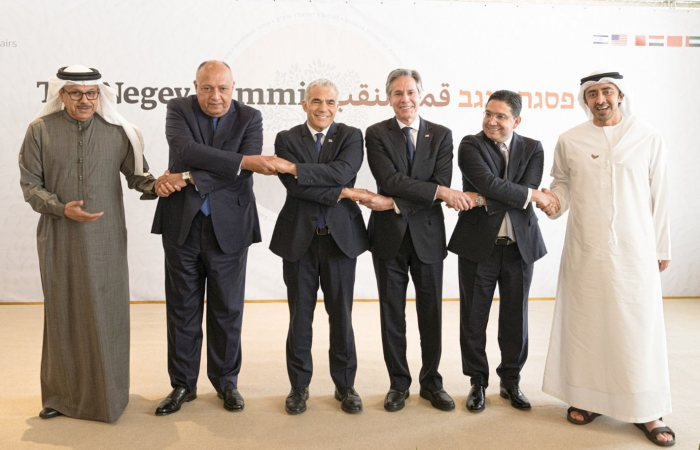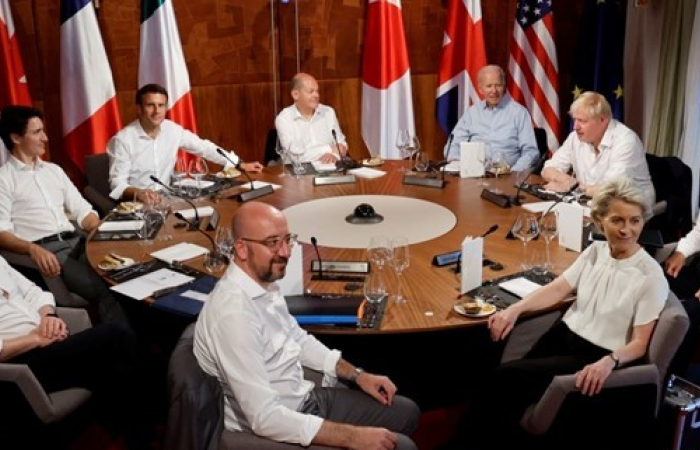Editor's choice
This is a members’ functionality. Please
Sign upNews
Trending
Is the Negev Forum about to become something bigger?
28 June 2022
On 27–28 March 2022 in Sde Boker, Israel hosted the foreign ministers of four Arab states – Bahrain, UAE, Egypt and Morocco, as well as US Secretary of State Antony Blinken for an unusual summit aimed at putting together a united front of countries concerned with Iran’s destabilising role in the Middle East. By all accounts the meeting appeared to be hastily prepared, and lacking proper focus. A lot of the serious fault-lines of the region emerged in the meeting too, including different perspectives on the Palestinian question and relations with Russia. But the participants did agree that they want to turn their meeting into a permanent process, and so the creation of the Negev Forum was announced. Now, it seems, the six countries have taken the first step to making this platform a regional player.
On Monday (27 June) senior officials from the foreign ministries of Bahrain, Egypt, Israel, Morocco, the United Arab Emirates, and the United States held the inaugural meeting of the Negev Forum Steering Committee in Manama, Bahrain. The Committee’s main objective is to further coordinate collective efforts and advance a common vision for the region. In this context, they outlined a framework document for the Negev Forum, setting out the objectives of the Forum, and the working methods of its four-part structure: the Foreign Ministers’ Ministerial, the Presidency, the Steering Committee, and the Working Groups.



